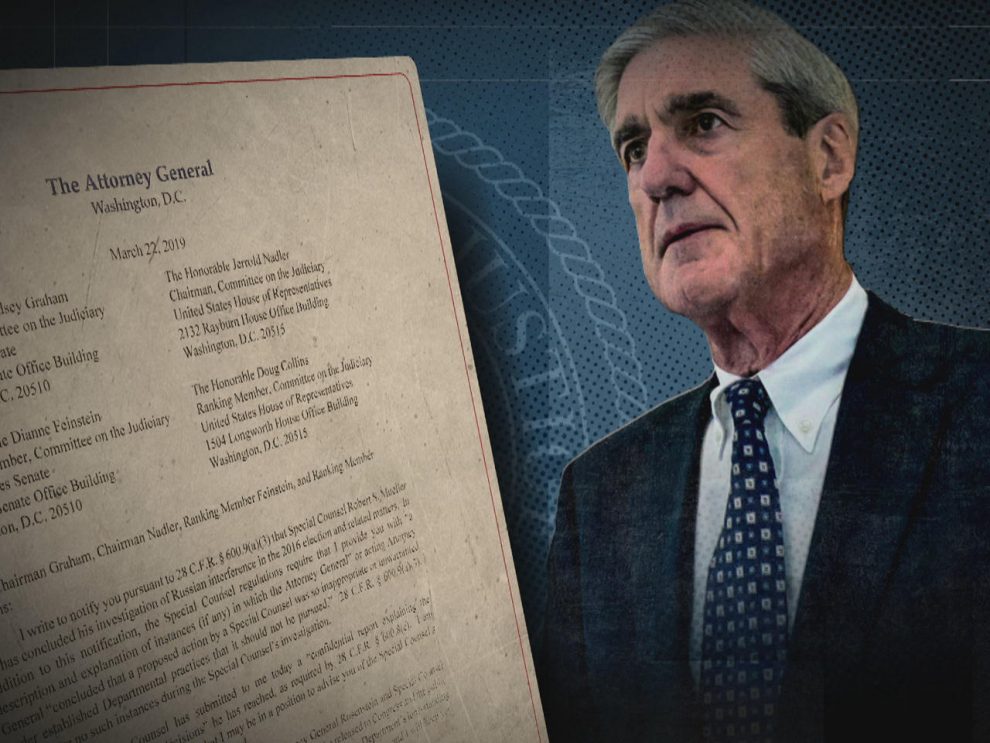WASHINGTON — In his extensive report, Special Counsel Robert S. Mueller notes that his investigative team did not “obtain or examine” the servers of the Democratic National Committee (DNC) in determining whether those servers were hacked by Russia.
Instead, Mueller’s assessment of the DNC’s allegedly hacked servers relied upon the investigations conducted by the FBI and other agencies. “The Office understands that the FBI, the U.S. Department of Homeland Security, and the states have separately investigated that activity,” reads Mueller’s report.
However, the DNC famously refused to allow the FBI to access its servers to verify the allegation that Russia carried out a hack during the 2016 presidential campaign. Instead, the DNC reached an arrangement with the FBI in which a third party company, CrowdStrike, conducted forensics on the server and shared details with the FBI.
As this reporter previously documented, CrowdStrike was financed to the tune of $100 million from a funding drive by Google Capital.
Google Capital, which now goes by the name of CapitalG, is an arm of Alphabet Inc., Google’s parent company. Eric Schmidt, the chairman of Alphabet, has been a staunch and active supporter of Hillary Clinton and is a longtime donor to the Democratic Party.
It was previously reported that Perkins Coie, the law firm that represented the DNC and Clinton’s campaign, helped draft CrowdStrike to aid with the DNC’s allegedly hacked server.
On behalf of the DNC and Clinton’s campaign, Perkins Coie also paid the controversial Fusion GPS firm to produce the infamous, largely-discredited anti-Trump dossier compiled by former British spy Christopher Steele.
Mueller’s report states that the GRU, the Main Directorate of the General Staff of the Armed Forces of the Russian Federation, “stole approximately 300 gigabytes of data from the DNC cloud-based account.”
The GRU also targeted “individuals and entities involved in the administration” of the presidential election, the report documents. “Victims included U.S. state and local entities, such as state boards of elections (SBOEs), secretaries of state, and county governments, as well as individuals who worked for those entities,” the report states.
Yet the Special Counsel’s office “did not investigate further” the evidence it said it found showing that Russia’s GRU targeted the DNC and the other entities. Mueller’s team did not examine or obtain the DNC’s servers.
The report states:
While the investigation identified evidence that the GRU targeted these individuals and entities, the Office did not investigate further. The Office did not, for instance, obtain or examine servers or other relevant items belonging to these victims. The Office understands that the FBI, the U.S. Department of Homeland Security, and the states have separately investigated that activity.
In June 2016, The Washington Post reported on the Perkins Coie law firm’s involvement in bringing in CrowdStrike to investigate the DNC’s allegedly hacked server.
The Washington Post documented how Michael Sussmann, a partner with Perkins Coie who also represented the DNC, contacted CrowdStrike after the DNC suspected its server had been hacked. CrowdStrike then identified hacker groups allegedly tied to Russia.
The Post reported that Sussman called in Shawn Henry, president of CrowdStrike.
The Post reported:
DNC leaders were tipped to the hack in late April. Chief executive Amy Dacey got a call from her operations chief saying that their information technology team had noticed some unusual network activity. “It’s never a call any executive wants to get, but the IT team knew something was awry,” Dacey said. And they knew it was serious enough that they wanted experts to investigate.
That evening, she spoke with Michael Sussmann, a DNC lawyer who is a partner with Perkins Coie in Washington. Soon after, Sussmann, a former federal prosecutor who handled computer crime cases, called Henry, whom he has known for many years.
Within 24 hours, CrowdStrike had installed software on the DNC’s computers so that it could analyze data that could indicate who had gained access, when and how.
According to The Post, citing DNC officials, the “hackers” had “gained access to the entire database of opposition research on GOP presidential candidate Donald Trump.”
In testimony before the Senate Intelligence Committee in January 2017, then-FBI Director James Comey confirmed that the FBI registered “multiple requests at different levels,” to review the DNC’s hacked servers. Ultimately, the DNC and FBI came to an agreement in which a “highly respected private company”—a reference to CrowdStrike—would carry out forensics on the servers and share any information that it discovered with the FBI, Comey testified.
A senior law enforcement official stressed the importance of the FBI gaining direct access to the servers, a request that was denied by the DNC.
“The FBI repeatedly stressed to DNC officials the necessity of obtaining direct access to servers and data, only to be rebuffed until well after the initial compromise had been mitigated,” the official was quoted by the news media as saying.
“This left the FBI no choice but to rely upon a third party for information. These actions caused significant delays and inhibited the FBI from addressing the intrusion earlier,” the official continued.
CrowdStrike is a California-based cybersecurity technology company co-founded by experts George Kurtz and Dmitri Alperovitch.
Alperovitch is a nonresident senior fellow of the Cyber Statecraft Initiative at the Atlantic Council. The Council takes a hawkish approach toward Russia and has released numerous reports and briefs about Russian aggression.
The Council is funded by the Rockefeller Brothers Fund, Inc., the U.S. State Department, and NATO ACT.
Another Council funder is the Ploughshares Fund, which in turn has received financing from billionaire George Soros’ Open Society Foundations.
Story cited here.
























